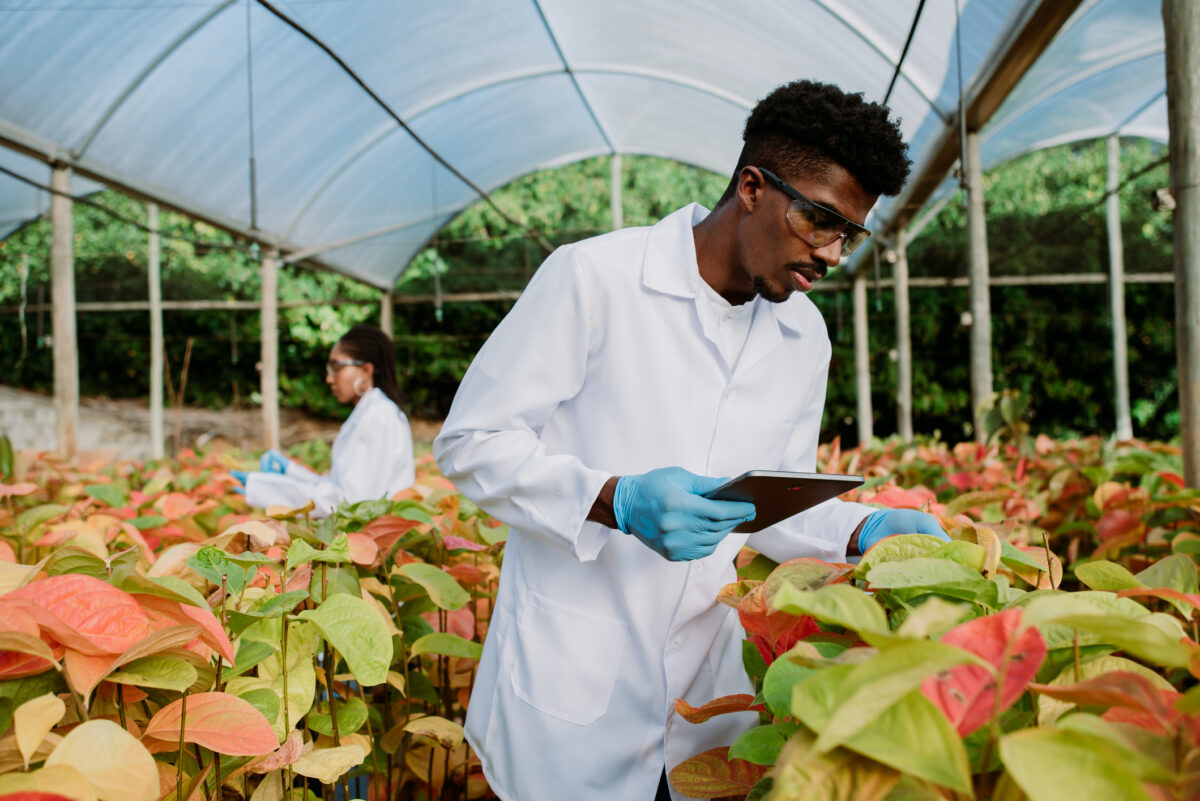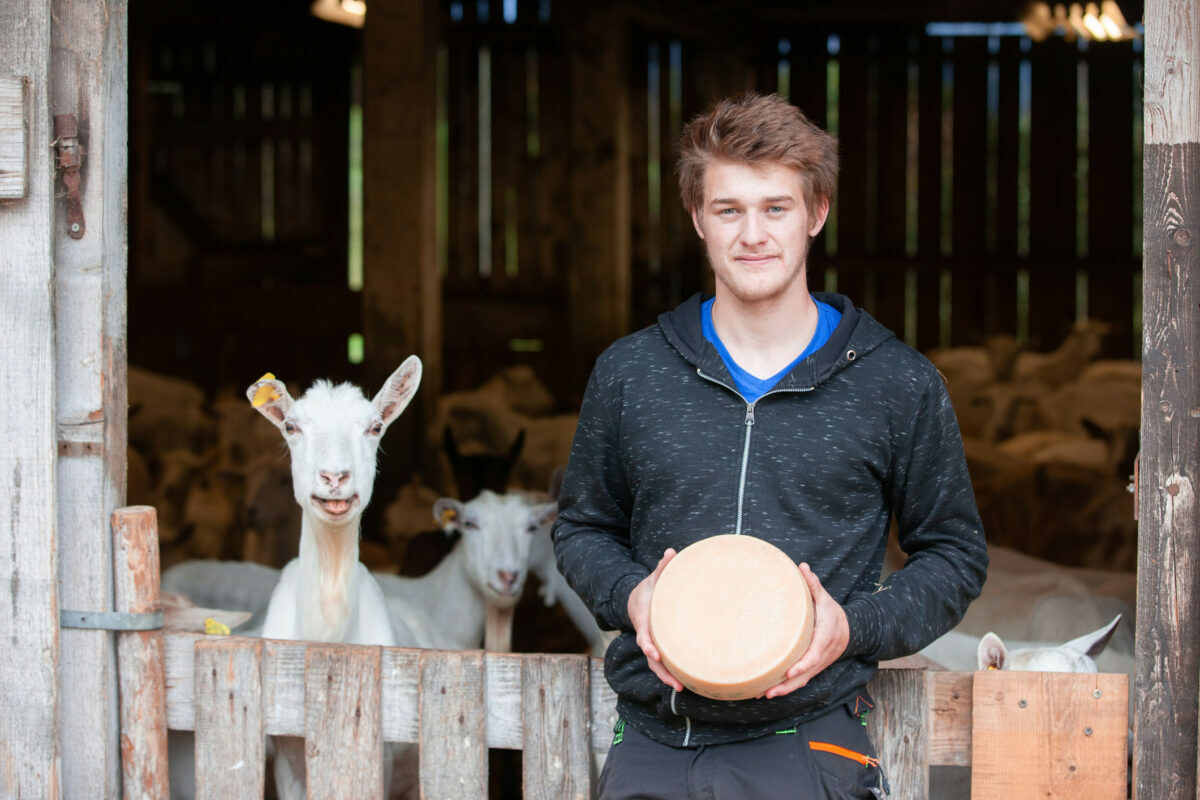Green Jobs: what does a Plant Geneticist do?

A Plant Geneticist is a key worker in the agricultural industry, as a prime aspect of their job is to research and discover new and enhanced varieties of crops that might be more tolerant to diseases, droughts, and other evironmental challenges, or that have an improved nutritional quality or size. They do this by studying the DNA of plants, and working to isolate certain genes which would improve them.
A Plant Geneticist is a vital green job in the food industry, as it is key to helping to develop food security, as more extreme living conditions for crops start to appear worldwide as a result of climate change.
In the UAE for example, an Abu-Dhabi-based research centre is assessing the viability of growing crops in new, complex environments such as outer space. An Israeli research group SpaceIL, is also planning to test out the growth of chickpeas in space with NASA later this February.
What are the job responsibilities?
- Discovering what genes are responsible for certain traits in plants and crops (e.g. size, taste, nutritional value, resistance to diseases)
- Collecting a wide range of data from plant trials (tests on plants conducted to determine their level of health)
- Finding how to improve crops and plants for a future where it may be increasingly difficult to grow crops in natural environments
- Writing reports for academic journals and keeping tabs on what research is being done in your field already
- Teaching plant genetics or related fields in universities to students at different levels of higher education
- Making estimates on the financial costs of research and figuring out ways to fund it
- Cross-growing plants for further tests
- Keeping note of all research completed and results of tests
Who might your employers be?
Plant Geneticists are most likely to be employed by agricultural seed and crop growth firms, chemical companies, or life science and plant genetics companies, where the role will be vital to help to support R&D development and produce safe, healthy and more sustainable food products.
Following this career path also allows you to enter the field of academia and teaching, or further research at dedicated institutes for agricultural academics, where you can help to create and discover crops that are more resilient to extreme conditions.
Jobs for this role may also occasionally be found at government-funded research institutes such as Rothamsted Research and the James Hutton Institute.
What qualifications do you need?
To follow this career path, you will likely need to have a clear interest in the biology of plants and crops. It will also be beneficial to study a Bachelor’s degree in any of the following courses:
- Molecular Biology
- Genetics
- Biology
- Life Sciences
- Biochemistry
- Horticulture
- Crop and Plant Science
Many Plant Geneticists also start work in the field after studying a Master’s course too. Some courses which may prove useful include:
- Plant Genetics and Crop Improvement (MSc offered by University of East Anglia’s School of Biological Sciences)
- Plant Biology (MPhil/PhD offered by University of Worcester’s Institute of Science and Environment)
- Fungal Biology (MRes offered by University of Nottingham’s Institute of Genetics)
- Molecular Plant and Microbial Sciences (MRes offered by Imperial College of London’s Department of Life Sciences)
- Applied Conservation Genetics with Wildlife Forensics (a professional development course offered by University of Edinburgh’s College of Medicine and Veterinary Medicine)
What is the salary like?
A starting salary for a Plant Geneticist can range from £18,800 upwards. As you reach a highly experienced level (five years or more), you can expect a salary increase of over £40,000.
Where will you be working?
Hours vary with this role, depending on the level of care and attention required by the plants, as well as their stage of growth and the urgency of plant trials. You could be working regular eight hour days, Monday to Friday some weeks, or overtime Monday to Sunday at other times in the year.
As an entry-level Plant Geneticist, you can expect to start working in a laboratory setting, and occasionally outdoors when field work is necessary.
What’s the career progression like?
How far you get with this job depends on how much experience you have, as well as how well you perform day to day in the role. As you move to a more senior position, whether this be as a Senior Plant Geneticist or a Senior Researcher in the field, you need to be able to deal with more responsability. You will no longer just be recognised as being in charge of your own tasks, but also the work of the wider team in general, if you work for a large company. With more experience you will also be able to work in different environments, carrying out more field work as well as lab work.
Is there a demand for this job?
According to the latest statistics from Recruiter.com, the demand for Geneticists in general is expected to grow over the next few years, with job vacancies predicted to go up annually by 2.44%.
With the agriculture industry predicted to face more challenges to plant and crop growing environments, Plant Geneticists are key to ensuring we can continue to produce food in a sustainable way for the future.








